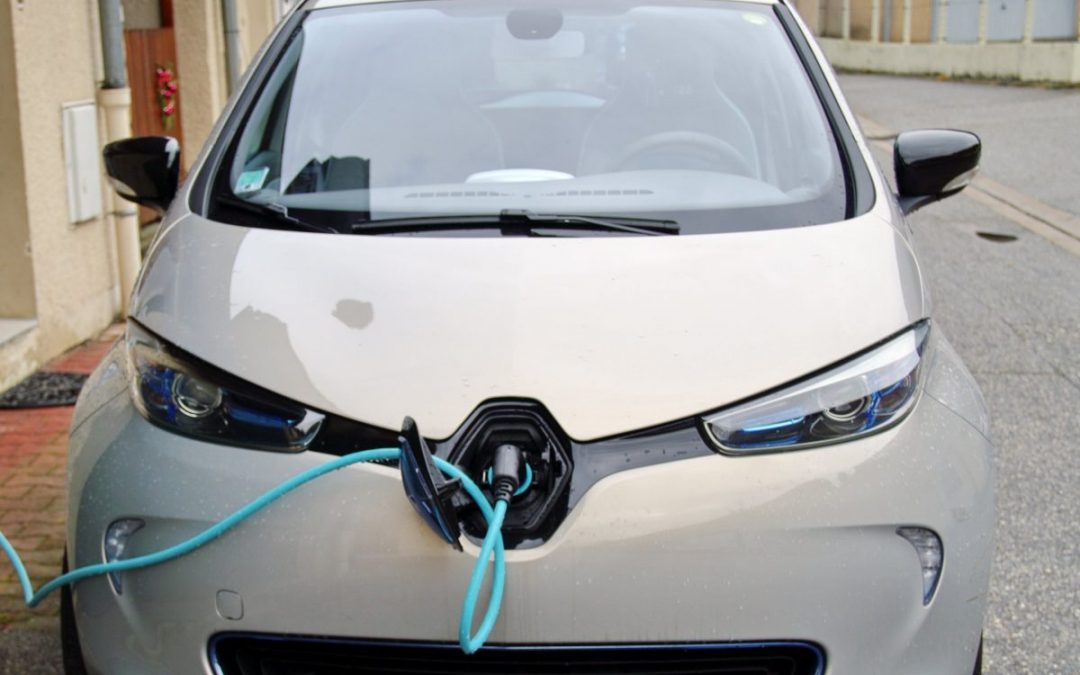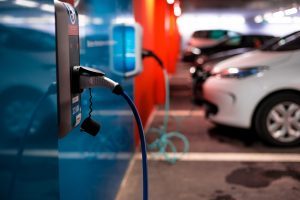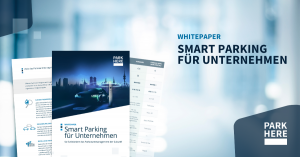Interest in electromobility is increasingly growing in Germany. According to the Vd-TÜV study one in three car owners can imagine buying an electric vehicle in the next eight years. Many companies, especially in urban areas, want to react to this development by linking parking with the provision of a charging infrastructure at their location for employees. The following will present the framework conditions, tax and legal requirements, and advantages that parking and charging concepts offer for companies.
German politics continues to pursue the goal of taking a leading role in the field of electromobility, and the market continues to grow rapidly. As the latest graphic shows, the number of electric cars in Germany rose to an impressive 1,528,150 vehicles by July 2024. This increase reflects the strong market dynamics that have accelerated, especially in recent years. Between 2020 and 2024 alone, the number of electric vehicles has increased more than tenfold – from 136,617 in 2020 to over 1.5 million in July 2024.
This increase is largely due to government subsidy programs such as the environmental bonus, which have continuously boosted demand for electric vehicles. German car drivers now have a variety of models available – from both domestic and international manufacturers.
With the increasing number of electric cars, the charging infrastructure, especially charging while parking, is also becoming increasingly important. The expansion of this infrastructure is crucial to meet the growing demand and further improve the suitability of electric vehicles for everyday use.
Against this background, it is essential for companies to address the issue of electric charging in the course of parking space management . The following provides information on the most important prerequisites, requirements, and reasons for parking and charging electric vehicles at the workplace.
Important Legislation – Charging at the Workplace
Companies must observe a number of laws, regulations, and tax conditions when providing electric charging stations at the workplace.
Calibration Law-Compliant Electric Charging
As with refueling at the gas pump, German calibration law plays a crucial role in the electric charging of a vehicle. It is intended to ensure that consumers can transparently see how much they have to pay for refueling or charging and that the amount charged is correct. The important legal foundations for calibration law-compliant and transparent charging of electric cars have now been created in Germany: The Association for Electrical, Electronic & Information Technologies has developed binding requirements on the basis of which the industry can develop calibration law-compliant AC and DC charging facilities.
In principle, there are already calibrated electricity meters that comply with the EU Measuring Instruments Directive (MID). These MID-calibrated electricity meters are used in households and businesses as well as in light industry and measure the so-called active consumption in kilowatt hours (kWh), i.e. the electrical energy that is absorbed by the electric car and converted into other forms of energy. In the case of a commercially used charging station, however, in addition to energy measurement, other parameters such as time stamps and authentication of the charging person must also be recorded.
For companies and their employees the following must be observed in this context: If an employee charges their company car free of charge at the workplace, this charging station does not have to be set up in accordance with calibration law. The situation is different if the employee has to pay to charge their private electric vehicle. Then this charging station must meet the requirements of calibration law.
However, if an external customer or visitor charges their vehicle for a fee at a company’s location, the charging station must be set up in accordance with calibration law.
Tax Conditions
Due to the German government’s plan to promote electromobility, the free charging of electric cars at the employer’s premises is not taxed as a non-cash benefit. However, as soon as companies decide to make the charging station publicly available and operate it economically, some tax conditions must be observed. In this case, sales tax is incurred. Incidentally, this also applies if the charging station is used exclusively by employees, but they do not receive a discounted tariff.
The electricity tax, on the other hand, does not have to be paid, as companies as providers of a charging station are equated with end consumers and are therefore not considered electricity suppliers.
Reasons why Companies Benefit from Providing a Charging Infrastructure
There are many reasons to have your own charging station infrastructure at companies. Employees, customers, and the public are increasingly paying attention to sustainability in the workplace and are demanding measures that meet their changing mobility needs.
Future-proof Mobility
Sustainable, low-CO2 mobility is being promoted in both the private and business sectors. For this reason, it can be assumed that legal requirements and financial incentives in the coming years will lead to a further increase in electric vehicles in the private and public sectors. Companies with their own charging facilities could soon have a valuable benefit for their fleet if the company switches to an electric fleet in the long term. Investments in a charging infrastructure for electric vehicles then represent an investment in the future of mobility and offer companies the opportunity to position themselves as pioneers in order to be optimally prepared for the future.
Take Advantage of Tax Benefits
Companies can take advantage of financial benefits for themselves and their employees when providing electric vehicles, as charging electricity on their own premises is tax-free.
Employer Branding
Companies that include Corporate Social Responsibility (CSR) among their values can use charging stations at the workplace to underpin their sustainable image and show both employees and visitors that environmentally friendly and sustainable values are lived.
Positioning yourself as a modern, innovative, environmentally conscious, and responsible employer can therefore have a positive impact on the company’s image. Hiring top professionals and retaining them is a challenge for many employers these days. Those who relieve employees of the worry about the next charging station can score points with this benefit. Surveys show that 59% of employees who are considering buying an electric car would be more likely to choose an employer who provides free charging stations for their employees.
Employee Satisfaction and Retention
36% of private users of electric cars live in the countryside, 18% in small towns. In rural regions, commuters are therefore often dependent on cars. Employees who drive to work in an electric car and have charging stations available there can conveniently charge their car during working hours. The working time, which is otherwise unused parking time for the car, can thus be used productively. This satisfies the changing needs of employees and thus contributes to a higher level of Employee Satisfaction . Since it is an eight-hour day for most employees, standard charging is sufficient. This may be cheaper for employees than having to drive to a fast charging station along the main roads on the way back, so that cost advantages can also arise for employees.
A comprehensive provision of the charging infrastructure at home and at the workplace ultimately makes the purchase of an electric vehicle attractive for many employees in the first place. With an employer who provides charging stations, electric vehicle drivers can benefit from purchase premiums and thus take advantage of the incentives with which the German government wants to further increase the proportion of electric cars.
Solution Options for Parking and Charging in the Company
There are various solutions on the market from start-ups and established companies. Intelligent parking space management solutions such as those from ParkHere can be combined with a suitable charging infrastructure. The Mobility House, for example, offers solutions for charging for employees as well as the company fleet.
ParkHere offers an intelligent complete solution for parking space management of company parking lots, which can also integrate the management of charging infrastructure. The Corporate Parking app allows employees to reserve a parking space with an electric charging station. After the employee has passed through the terminal has been authenticated and has arrived at the reserved parking space with charging station, charging can be started via the app. During the charging process, the user can find information about the number of kWh charged so far, the costs, and the duration of the charging process in the app. An overview of the reservations made so far and the costs for the charging process can be found in the billing overview.
Conclusion
Based on trend research and the promotion by the German government, it can be assumed that e-mobility will rapidly increase in importance in the coming years. The topic of parking and charging is also becoming increasingly relevant for companies: on the one hand with regard to employee satisfaction, on the other hand with regard to company values such as sustainability in the company fleet. When implementing a charging infrastructure at the company location, companies have various providers of sustainable solutions at their disposal. It is essential to be clear about the requirements for the charging infrastructure and how the implementation can be as sustainable as possible for the company before deciding on a charging infrastructure. Providers such as ParkHere are available to provide support in the selection and decision-making process.
We have summarized further information on the topic of Smart Parking for companies in this free white paper for you.
Sources
https://www.mobilityhouse.com/de_de/magazin/e-mobility/eichrechtskonformes-laden.html
https://www.mobilityhouse.com/de_de/magazin/e-mobility/eichrecht-unternehmen.html/
https://newmotion.com/de_DE/7-gruende-warum-ladestationen-fuer-ihr-unternehmen-nuetzlich-sind/
https://www.handwerksblatt.de/unternehmensfuhrung/elektroauto-steuerfrei-in-der-firma-aufladen
https://www.adac.de/rund-ums-fahrzeug/elektromobilitaet/laden/elektroauto-laden-wallbox-faq/
all sources were accessed on March 25, 2020




